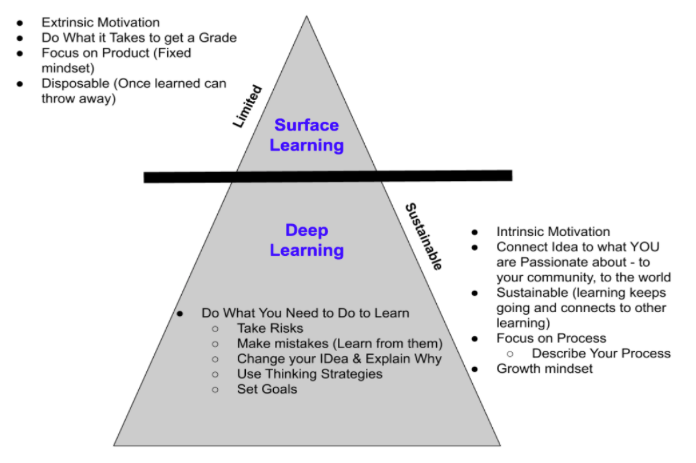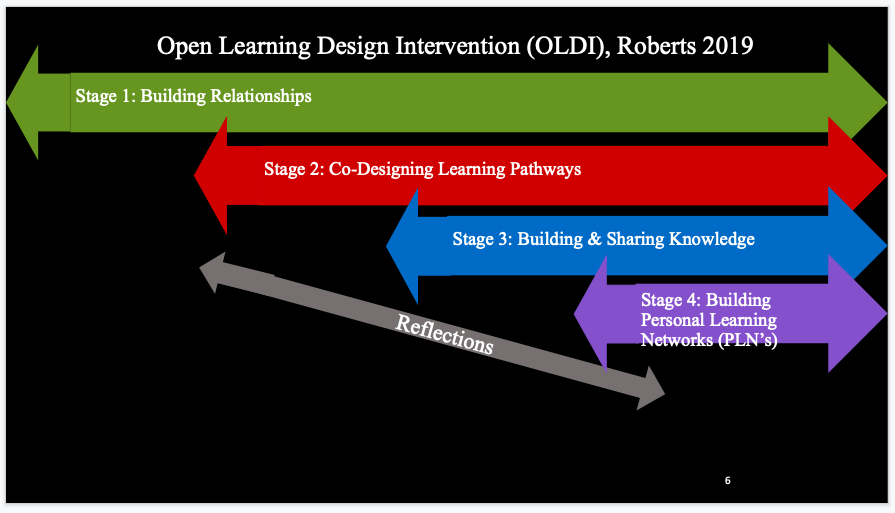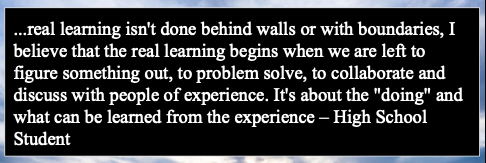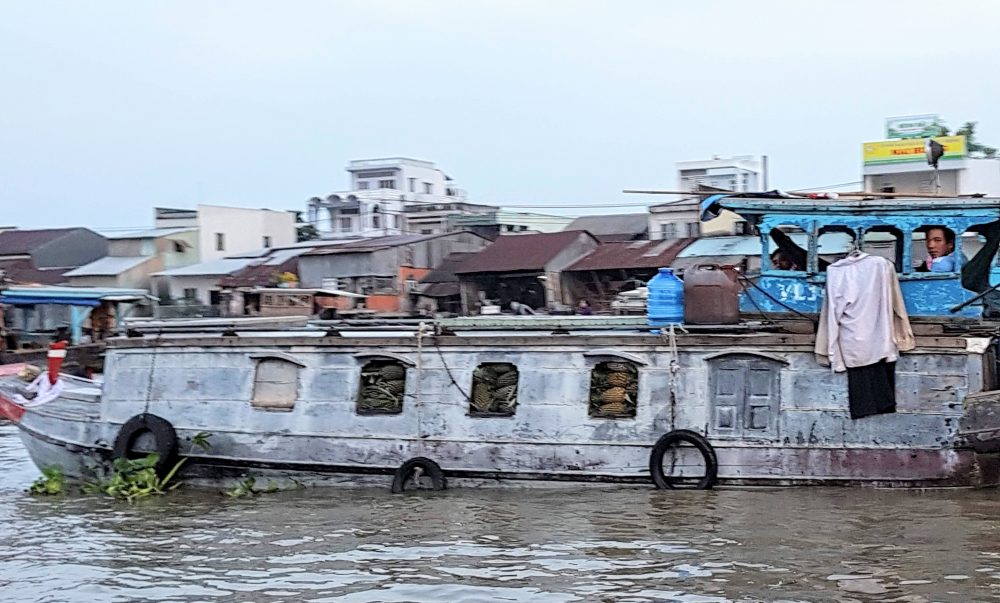I often wonder where I would be, regarding my English language knowledge, if I had access to Open Educational Resources (OER) growing up. If I think back, most of my schooling in Romania, with extrinsic motivation playing a big role, always focusing on the grades, was mainly based on “surface learning” (Roberts, 2019). Comparing my previous experiences with my EC&I 831 class, I clearly understand the difference between “surface learning” and “deep learning” described by Dr. Roberts (2019) with the latter based on intrinsic motivation. In the learner centred environment of EC&I 831, I am given the opportunity to learn something that I am truly passionate about, leading to “knowledge-creation” through a high level of intrinsic motivation.

I feel fortunate to have the opportunity to learn about Open Educational Practices (OEP) through the eyes of both, a university student as well as a teacher. Through my piano learning project, I am experiencing the four stages of Open Learning Design Intervention (OLDI) described by Dr. Roberts (2019) which helps me better understand the steps of my own learning and the value behind each step.

I didn’t have any doubts regarding my learning project since I felt I was part of a safe learning space with my supportive professor, Dr. Alec Couros and peers by my side. I also felt that the abundant world of OER is hard to use for a number of reasons. For me personally, the hardest part was to find high-quality, user friendly resources. It is challenging to decide if the resources are quality materials or not, especially when the topic, or skill is completely new. To overcome this barrier, I decided to find a piano teacher for co-designing and scaffolding purposes along my piano learning journey. Building and sharing my experiences and knowledge in the form of a podcast and on Twitter made me feel quite vulnerable. Overcoming the strange feeling of being outside of my comfort zone and recording every step while taking risks and making mistakes, literally in front of the world, help me see my own growth within my learning path. After overcoming the fear of being judged, sharing also brought me the gift of interactions, positive feedback, collaborations, and connections leading to learning from one another. Reflecting on the “multiple people, spaces, perspectives, experiences and nodes of learning” (Roberts, 2019) combined with an open mind and willingness to learn helped me build a Personal Learning Network (PLN).

At the end of the day, as a support staff, I find it quite challenging to incorporate OER and OEP. Beside the major drawback, which is lack of time in my case, Dr. Verena Roberts discussed in the podcast hosted by Dean Vendramin that we need to have open readiness as well. Having no digital literacy skills can make the OEP quite hard to happen. Lori Thibault also names a number of drawbacks in her blogpost, such as finding reliable, age-appropriate resources, having limited access to devices, programs, applications, low internet speed, lack of technological training and adequate amount of preparation time. At this time, I am focusing on building a safe space for my students as well as expanding the learning environment beyond the classroom walls by finding, creating, remixing and sharing my learning experiences through social media, blogging, and podcasting.


Hey Melinda, I think you’re right about digital literacy skills. If you don’t have them it would be really hard to do OER and a lot of other things as well, both as a teacher and a student.
I really feel that the teaching of digital literacy skills (at least in Manitoba) is really glossed over and not thought of as important. Kids are “digital natives” and they “already know this stuff” seems to be a very common theme I hear.
Hi Matteo,
Thanks so much for your comment. Interesting topic you brought up. I just wonder if our “digital native” kids can acquire appropriate digital literacy skills and can implement them efficiently and safely on their own? If I look at my journey in creating my positive digital identity, as well as learning how to play the piano, I think the guidance is crucial.